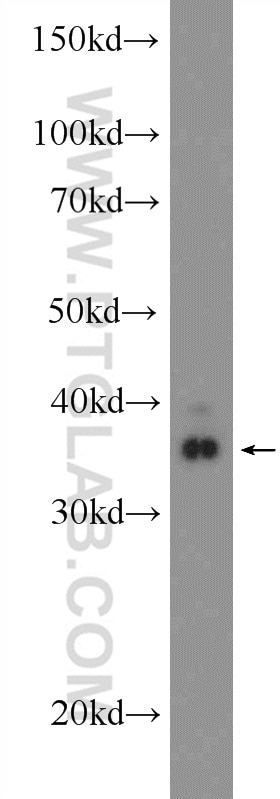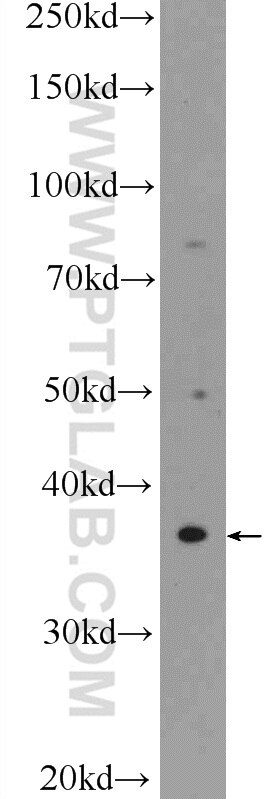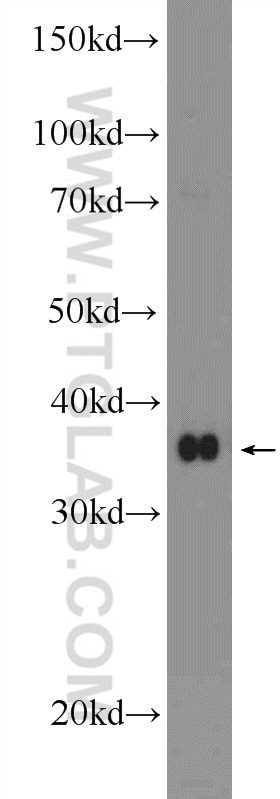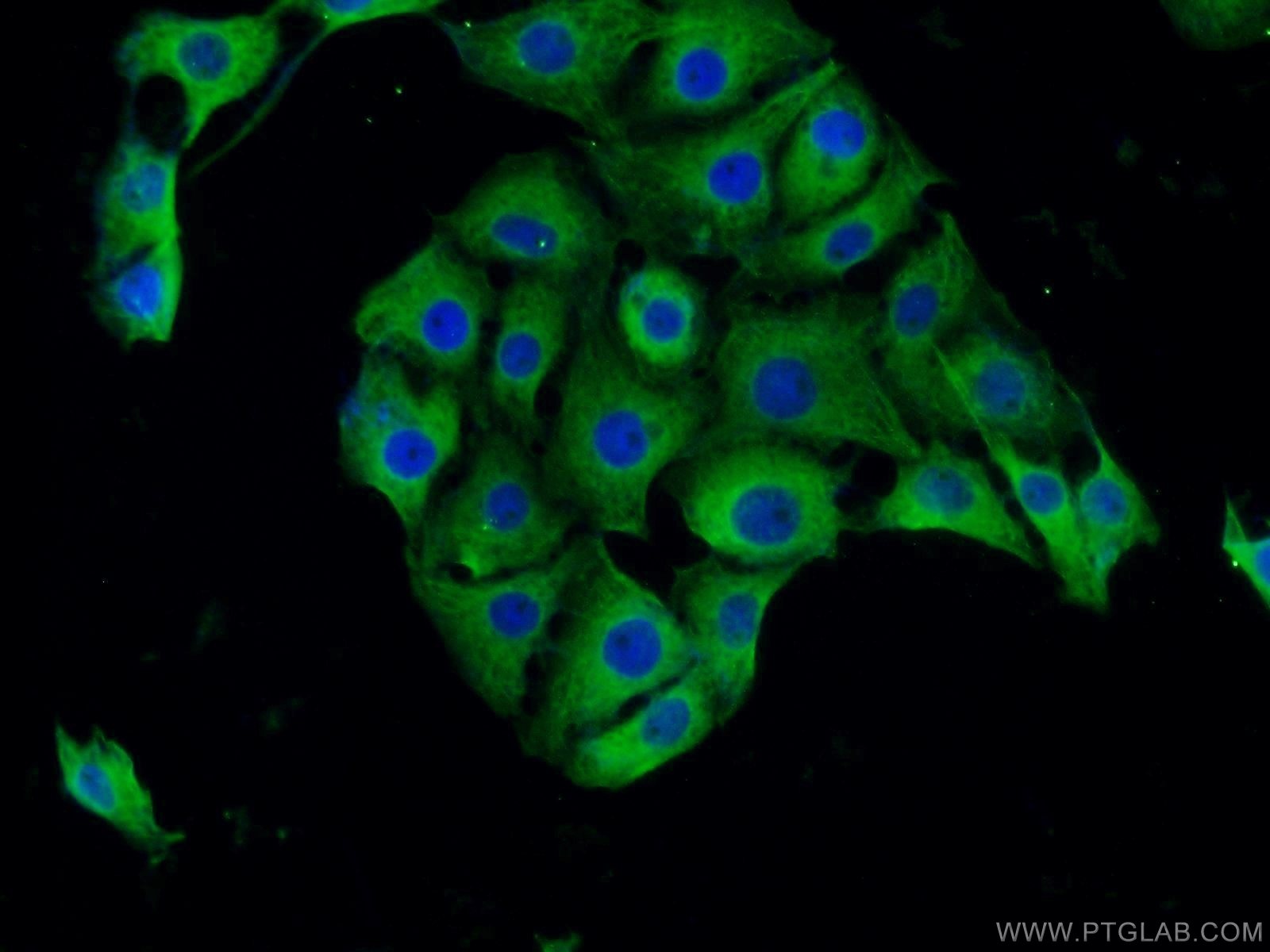BHLHE22 Polyklonaler Antikörper
BHLHE22 Polyklonal Antikörper für IF, WB,ELISA
Wirt / Isotyp
Kaninchen / IgG
Getestete Reaktivität
human, Maus und mehr (1)
Anwendung
WB, IF, ELISA
Konjugation
Unkonjugiert
Kat-Nr. : 25622-1-AP
Synonyme
Galerie der Validierungsdaten
Geprüfte Anwendungen
| Erfolgreiche Detektion in WB | SH-SY5Y-Zellen |
| Erfolgreiche Detektion in IF | SH-SY5Y-Zellen |
Empfohlene Verdünnung
| Anwendung | Verdünnung |
|---|---|
| Western Blot (WB) | WB : 1:200-1:1000 |
| Immunfluoreszenz (IF) | IF : 1:10-1:100 |
| It is recommended that this reagent should be titrated in each testing system to obtain optimal results. | |
| Sample-dependent, check data in validation data gallery | |
Veröffentlichte Anwendungen
| WB | See 2 publications below |
Produktinformation
25622-1-AP bindet in WB, IF, ELISA BHLHE22 und zeigt Reaktivität mit human, Maus
| Getestete Reaktivität | human, Maus |
| In Publikationen genannte Reaktivität | Maus, Ziege |
| Wirt / Isotyp | Kaninchen / IgG |
| Klonalität | Polyklonal |
| Typ | Antikörper |
| Immunogen | BHLHE22 fusion protein Ag20966 |
| Vollständiger Name | basic helix-loop-helix family, member e22 |
| Berechnetes Molekulargewicht | 381 aa, 37 kDa |
| Beobachtetes Molekulargewicht | 37 kDa |
| GenBank-Zugangsnummer | BC156671 |
| Gene symbol | BHLHE22 |
| Gene ID (NCBI) | 27319 |
| Konjugation | Unkonjugiert |
| Form | Liquid |
| Reinigungsmethode | Antigen-Affinitätsreinigung |
| Lagerungspuffer | PBS mit 0.02% Natriumazid und 50% Glycerin pH 7.3. |
| Lagerungsbedingungen | Bei -20°C lagern. Nach dem Versand ein Jahr lang stabil Aliquotieren ist bei -20oC Lagerung nicht notwendig. 20ul Größen enthalten 0,1% BSA. |
Protokolle
| Produktspezifische Protokolle | |
|---|---|
| WB protocol for BHLHE22 antibody 25622-1-AP | Protokoll herunterladen |
| IF protocol for BHLHE22 antibody 25622-1-AP | Protokoll herunterladen |
| Standard-Protokolle | |
|---|---|
| Klicken Sie hier, um unsere Standardprotokolle anzuzeigen |
Publikationen
| Species | Application | Title |
|---|---|---|
Cell Metab Deubiquitinase OTUD3 regulates metabolism homeostasis in response to nutritional stresses. | ||
PLoS One Chi-miR-4110 promotes granulosa cell apoptosis by targeting Sma- and Mad-related protein 2 (Smad2) in the caprine ovary. |





